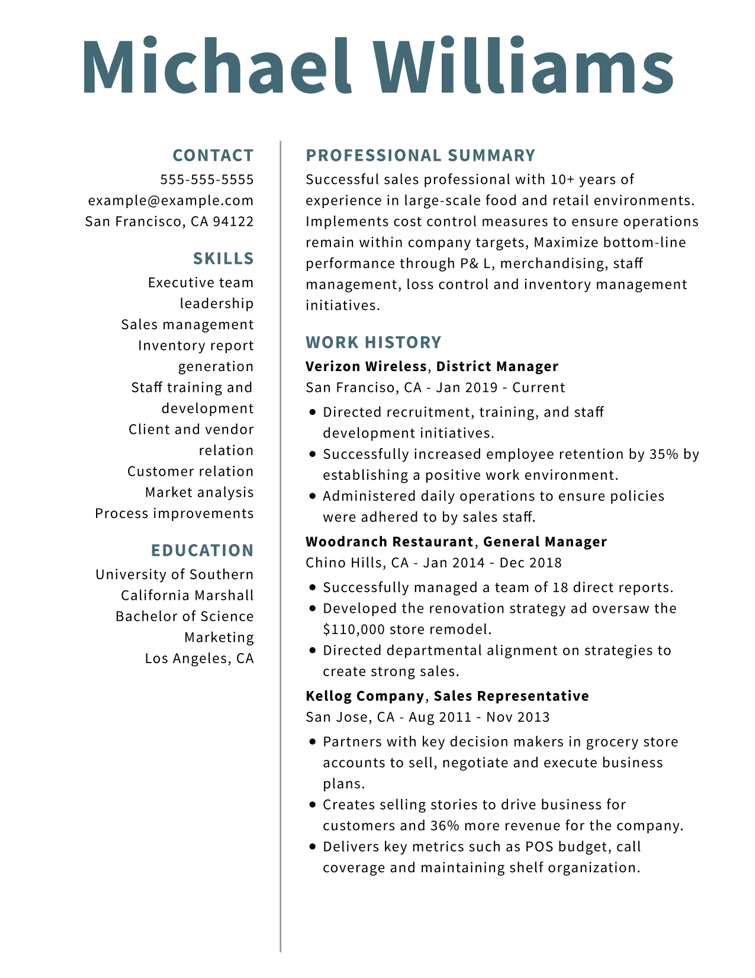Get the most out of bullet points on your CV
Bullet points are a common feature on most CVs. How can you effectively use bullet points to get information across on your CV?
Bullet points are a common feature on most CVs. How can you effectively use bullet points to get information across on your CV?





OUR USERS HAVE BEEN HIRED BY

Making the most of the space on the page is crucial when writing a great CV. Because there’s a limit to how much information you can include in a CV, formatting tools like bullet points are of the utmost importance. Bullet points allow job seekers to provide more information in less space and increase the readability of a CV. Here’s how you can use effective CV bullet points in your job search.
When you write your own CV, think about the format that you have chosen when deploying bullet points. If you are writing a one-page CV format, you will have an equal amount of space for bullet points in your work history and skills sections. If you choose a skills-based format or chronological format, however, you will need to focus on your skills or work history sections, respectively. Good bullet points in the right places will grab and hold a hiring manager’s attention. Here are the best places to use bullet points in a professional CV.
Work experience
The professional experience section of any CV should be presented in reverse-chronological order and contain up to 15 years of work experience. This is a good section to use bullet points in because they will allow you to highlight your major duties and achievements.
Summary statement
Your professional summary section is also a great place to use bullet points. Placed directly below the CV header (which should contain your full name and contact information), a personal statementshould contain only your best skills and qualifications. Narrow down the skills, certifications and achievements that best meet the needs of potential employers and present them in your summary of qualifications using a few bullet points.
Skills section
The skills section is one of the most common places to use bullet points in a CV because of the amount of information it needs to contain. Your skills section should contain all of the hard skills, soft skills and technical skills that make you suitable for the job title you are applying for. Therefore, it is key that you use bullet points to ensure you can address all of the skills required by the job posting. This not only increases your chance of impressing a hiring manager but makes your CV more friendly to applicant tracking systems (ATS) that will scan your CV. Some skill section bullet point examples include:
These tips from professional CV writers will help you to use bullet points in a way that directly deals with the most important parts of a job description. Some of these CV writing tips can also be useful when creating a matching cover letter for your application.
Spend a few moments brainstorming the skills, qualifications and experiences that are most relevant to the job posting. A good CV bullet point should add unique value to the overall CV rather than repeating information or filling space.
When you list achievements, be specific and use numbers or precise metrics. For example, “Increased productivity by 20%” or “Won four awards for excellent customer service” rather than “increased productivity” or “won awards.”
Your first bullet point should contain the most relevant and impressive skill and achievement you have. Recruiters will see these bullet points first if you list them at the top of their respective sections and this could prompt them to read further.
Save space by using phrases rather than complete sentences. For example, “Achieved personal best of 230 sales in a month” rather than “I achieved a personal best of 230 sales in one month last year” Both statements provide clear information, but the first is more concise and compact.
Use action verbs to make your bullet points impactful. Passive language choices will not impress hiring managers, so say “managed” rather than “was responsible for” to take ownership of your career and achievements. To make it even easier to create a well-formatted, effective CV that uses bullet points effectively, use CVHelp’s CV builder.
Try to limit your bullet points to one or two lines at most. You can write longer bullet points in your work experience section if necessary, but remember that your CV should be one to two pages in length.
Most of the time, the number of bullet points is not important because they are an incredibly effective way to communicate lots of information to recruiters in a short CV. Just ensure that all of your bullet points contain relevant information.
There is no single answer to this. Some people say yes, while others say it’s not needed, especially if the bullet points are fragments. Whatever you choose to do, it is crucial that you are consistent. Don’t mix and match, as inconsistency can put hiring managers off.
Move your CV to the top of the yes pile!
Build my CVWe personalize your experience.
We use cookies in our website to ensure we give you the best experience, get to know our users and deliver better marketing. For this purpose, we may share the information collected with third parties. By clicking “Allow cookies” you give us your consent to use all cookies. If you prefer to manage your cookies click on the “Manage cookies” link below.